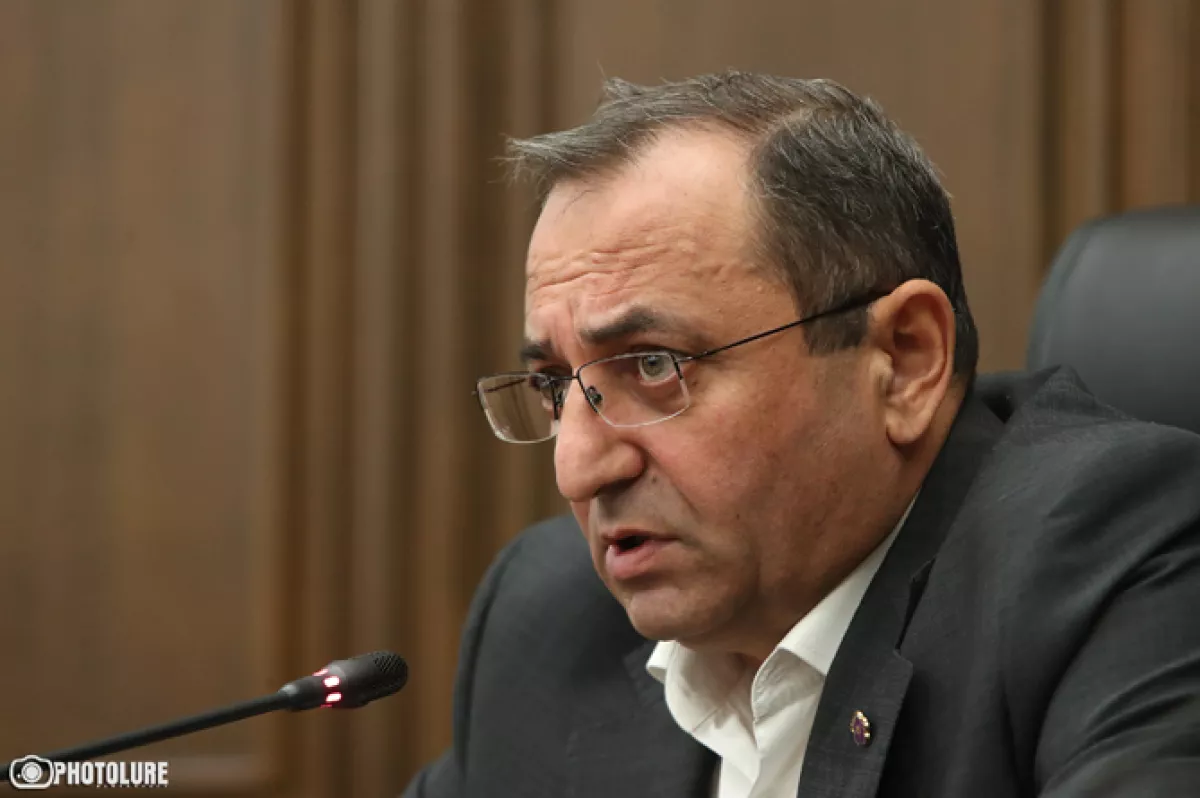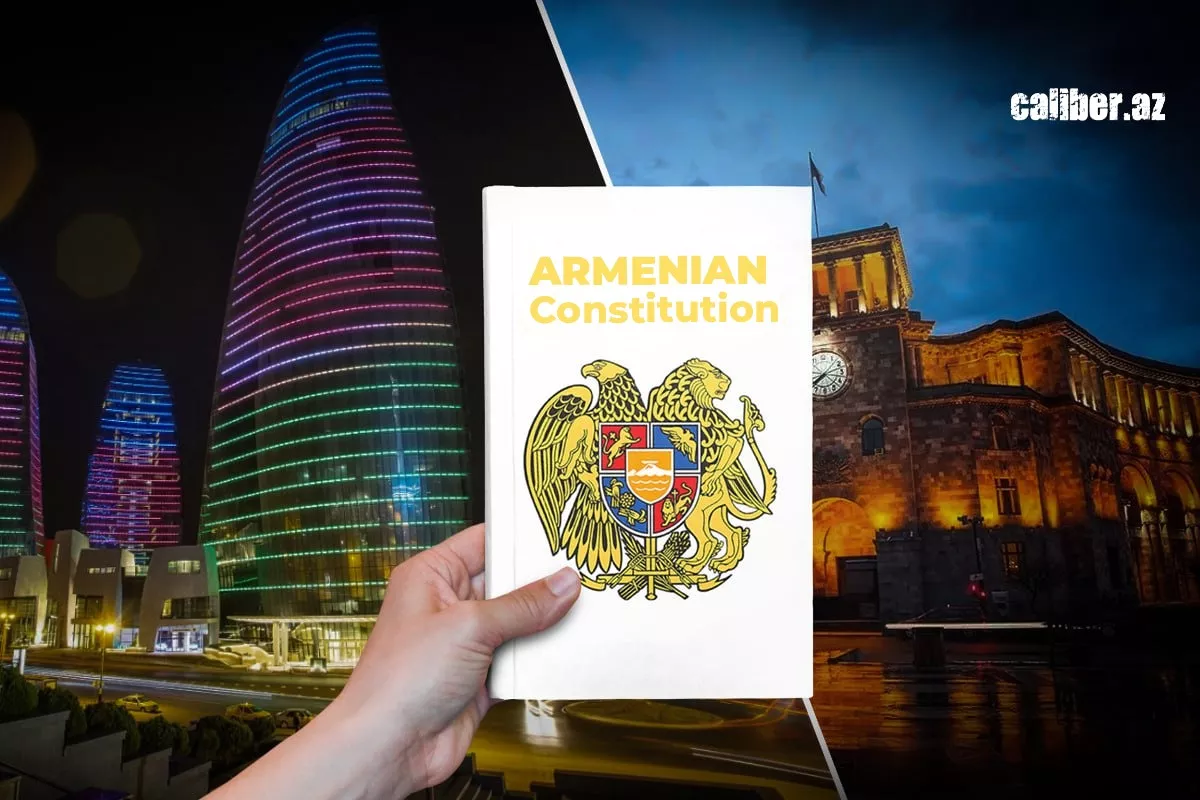In the grip of revanchist passions A primer for Minasyan
One should not only read the classics but reread them as well. After all, life often presents us with situations straight out of their pages. Take, for instance, the novel The Twelve Chairs by Ilf and Petrov, which vividly describes how the wife of engineer Shchukin, Ellochka, whose vocabulary was extremely limited but did include the phrase “let’s take a taxo,” decided to compete with the daughter of American billionaire Cornelius Vanderbilt — someone who, of course, had never heard of Ellochka in her life.
Now here’s a real-life example that echoes the efforts of Ellochka the Cannibal and her friend Fima. Artsvik Minasyan, secretary of the parliamentary faction “Hayastan,” somehow managed — by means known only to him — to squeeze himself into a broadcast of the program Abovyan Time (the name alone says it all!) on Sputnik Armenia radio, which is headed by none other than Margarita Simonyan. Once on air, he began to expound on global matters.

This individual, who figures in several criminal cases initiated under multiple articles of Armenia’s Criminal Code, took it upon himself during the broadcast to make statements supposedly on behalf of “global powers” — in particular, claiming that these powers are “concerned about Turkish-Azerbaijani aggression.”
Now, of course, we understand Minasyan’s desire to salvage his public image, which has been seriously damaged by charges of abuse of office, embezzlement, and misappropriation of state funds. But trying to do so by fanning the flames of nationalist, revanchist, and anti-Azerbaijani sentiment is a highly questionable route to take.
First, those very same “global powers” he references — who likely wouldn’t dream of reporting their plans to Minasyan even in their sleep — might be quite offended by such claims.
Second, instead of restoring his reputation, he risks acquiring a new one — that of someone under the influence of strong hallucinogens. Because there has been no “aggression” against Armenia. Azerbaijan has merely restored its sovereignty and territorial integrity, fully in line with international law. And the international community has recognised the new realities that emerged following the Second Karabakh War. Today, not a single major global power questions Azerbaijan’s territorial integrity. On the contrary, all key international actors — from the United States to the EU — are calling for the swift conclusion of a peace agreement between Baku and Yerevan.
That is a fact — and as we all know, facts are stubborn things.
Moreover, the secretary of a parliamentary faction ought to remember that it was Armenia that committed aggression against Azerbaijan and held Azerbaijani territories under occupation for nearly 30 years, in blatant disregard of UN Security Council resolutions demanding the withdrawal of Armenian forces from those occupied lands.
Furthermore, during the aforementioned broadcast, Artsvik Minasyan lamented the so-called “threats to the international order.” But who, if not he, should know that this very “international order” he now so passionately defends was itself paralysed, in part, by the aggressive policies of his own country. It was only thanks to Azerbaijan’s victory in the Second Karabakh War that the South Caucasus region gained a real opportunity for peace. And yet, the Armenian side persistently undermines the peace process, constantly avoiding the fulfilment of Azerbaijan’s legitimate demands.

The main stumbling block remains the Armenian constitution, whose preamble refers to the Declaration of Independence — a document that contains territorial claims against Azerbaijan. As long as this reference remains enshrined in Armenia’s fundamental law, any statements by the Armenian leadership about recognising Azerbaijan’s territorial integrity will remain nothing more than hollow words.
As we can see, Baku’s demand for amendments to the Armenian constitution — in line with current realities and international law — is entirely legitimate. It is also worth emphasising that today the international community — from the European Union to Washington — clearly states that peace between Azerbaijan and Armenia is more attainable than ever before. And the Azerbaijani government, which initiated peace talks with Yerevan, remains ready for peace — on the condition that its entirely reasonable demands are met.
However, individuals like Minasyan still cannot accept reality and continue to live in the past, peddling fantasies of “revenge.” Fortunately, such voices are becoming increasingly marginal. According to a survey by the International Republican Institute, 47% of Armenian citizens support a peace agreement with Azerbaijan. So Minasyan is not only remarkably out of touch with global geopolitical realities, but also with the mindset of his own people.
He would do well to stop cluttering the airwaves with statements about things that his mind — fixated as it is on the myth of a “Greater Armenia” — is incapable of grasping or comprehending. As the saying goes, “the hat is far too big for the head.”








